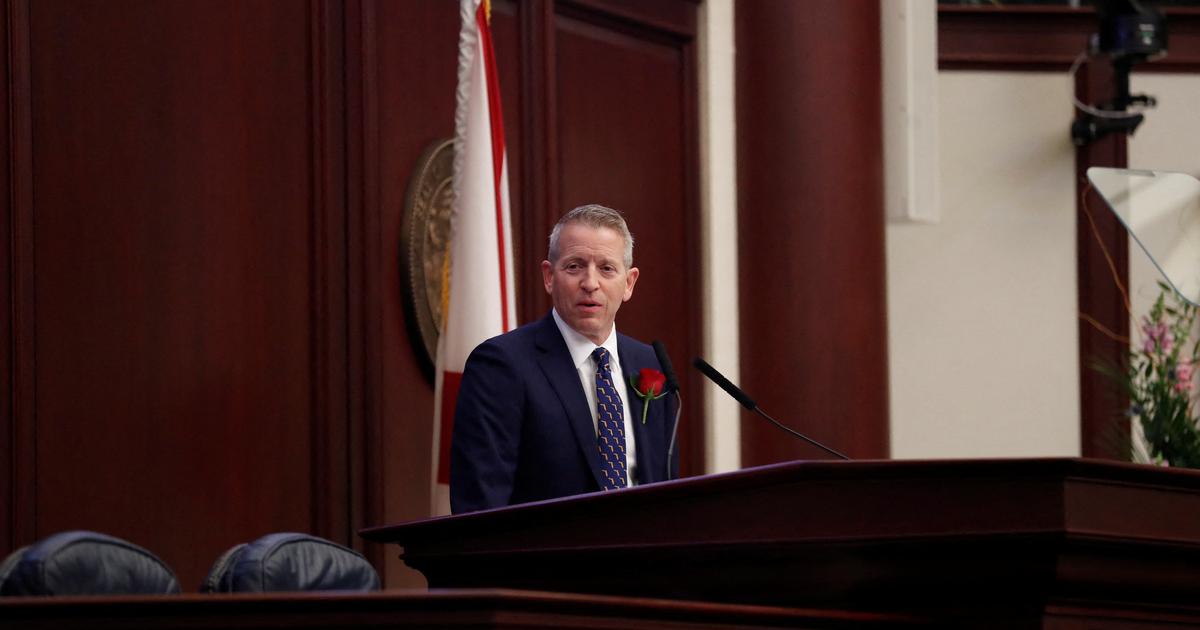On Wednesday, January 24, members of the Florida House of Representatives spoke in favor of a bill aimed at restricting the use of social networks for minors.
The
“Social Media Use for Minors Bill”
was widely adopted, mixing the votes of the Republican majority with those of part of the Democratic opposition (106 for and 13 against).
Florida becomes the sixth American state to legislate on access to digital platforms for minors.
On
_
_
_
_
_ »
.
Put on the conservative agenda by the governor of Florida and defeated candidate in the Republican primary, Ron DeSantis, the text provides for the ban on minors under 16 years of age from creating an account on a social network, even if the parents give their consent.
Already existing profiles must be deleted by digital platforms or face a fine of up to $10,000 for non-compliance.
Also readRepublican primaries: “The withdrawal of Ron DeSantis marks the failure of Trumpism without Trump”
The proposed law, however, remains vague on the services affected by this ban on access to under 16s.
The text defines them as
“any online forum, site or application”
that
“uses addictive, harmful or deceptive design elements”
or likely to generate
“excessive or compulsive use”
.
Republican Representative Fiona McFarland went so far as to compare social media to drugs during her speech in the House, talking about
“dopamine shots”
or
“digital fentanyl”
.
However, the law does not concern video games or streaming platforms.
Only a few Democratic critics have expressed concerns about state interference in parents' educational choices.
The proportionality of such a measure in relation to the objectives pursued is also called into question.
“What we need to do is put in place safeguards and not a wall,”
warned Democratic Representative Michael Gottlieb, who positioned himself in favor of an amendment aimed at giving freedom to parents to authorize, or not, access to social networks to their children.
A request that remained a dead letter.
A global trend
In the sights of Florida legislators, Tik Tok, Meta (parent company of Facebook and Instagram) and
For these platforms, the law would violate the First Amendment to the United States Constitution and the principle of freedom of expression.
It is in these terms that Net Choice, a lobby that brings together tech giants, challenged the constitutionality of a similar law in Utah, the first American state to have adopted a text on the subject in March 2023. -this planned to condition the access of minors to social networks on the agreement of their parents or to establish a digital curfew between 10:30 p.m. and 6:30 a.m. for those under 18 years old.
Utah led the way for a series of other legislative proposals in Arkansas, Louisiana, Ohio and Texas.
Also read: United States: VPN requests jump in Utah after blocking of pornographic sites
But the United States is far from being the pioneers in this area.
Already in 2015, the Taiwanese Parliament adopted a law to combat abuse linked to Internet use among young people.
In its Chinese neighbor, the constraint is much stronger.
The communist power attacked Tik Tok, whose local version, Douyin, now includes a screen time limit for children and applies a filter on content accessible to those under 18 years old.
For Tristan Harris, co-founder of the Center for Humane Technology, interviewed on the show 60 Minutes,
"it's a bit as if the Chinese authorities recognized that technology influences the development of children, and that they made their national variant of Tik Tok a watered down version, while they sent the opium version to the rest of the world.
»
On the European side, the General Data Protection Regulation (GDPR) establishes a
“numerical majority”
set at the discretion of Member States between 13 and 16 years old.
This 2018 directive allows, in theory, to restrict the access of
“digital minors”
to social networks without the consent of their parents.
In practice, online age verification still remains a difficult task, both in Europe and the United States.

